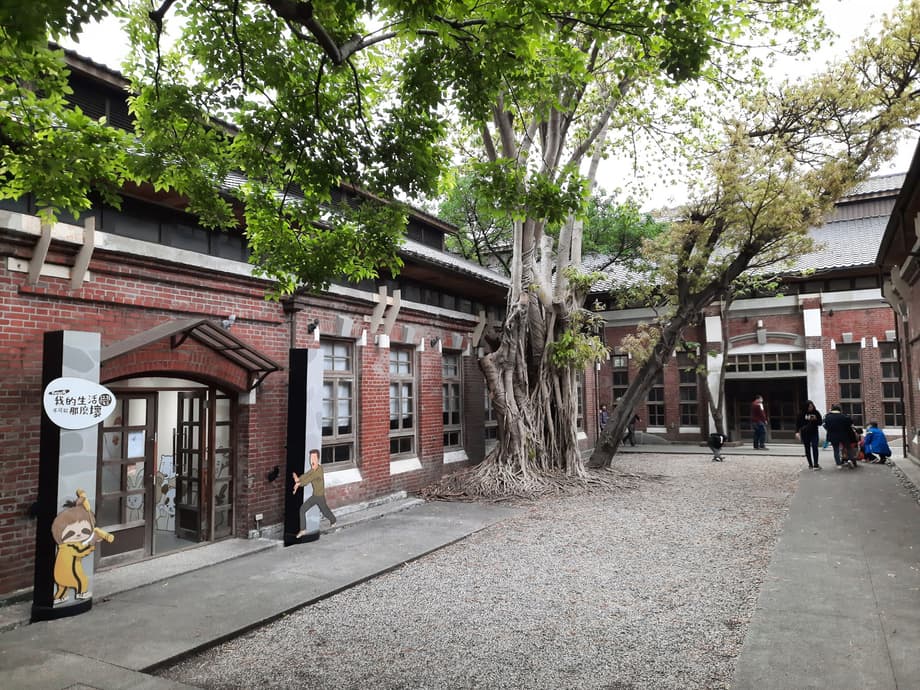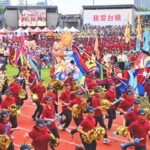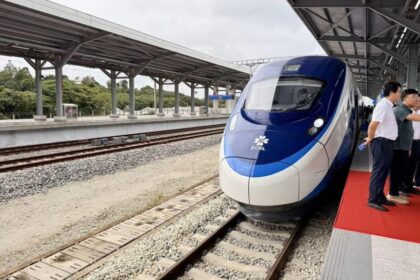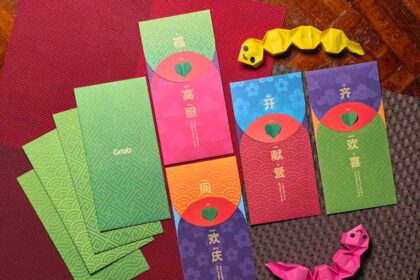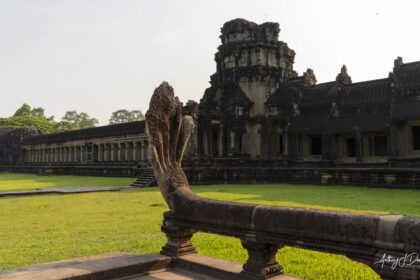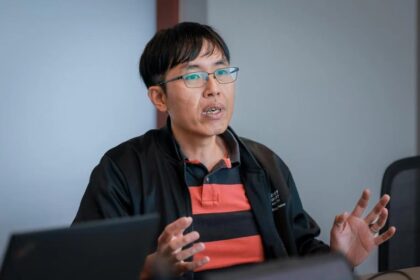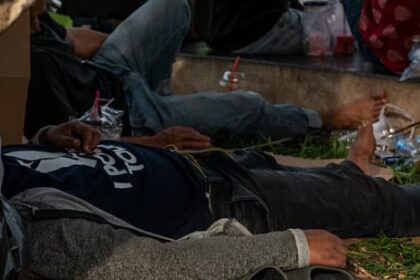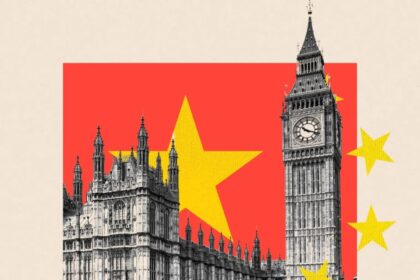A weekend market with a deeper message
The voices at Taipei’s Huashan 1914 Creative Park mixed Cantonese and Mandarin, a soundscape that told its own story. For two days, 68 stalls run by Hong Kong people living in Taiwan served snacks, sold crafts, and, in one corner, displayed books that are no longer publishable back in Hong Kong. The event drew long lines and warm conversations, but it also carried a quiet theme. It was about the space to make, to publish, and to be heard.
- A weekend market with a deeper message
- From protests to print: how the law reshaped culture
- Organizers say Taiwan is a place to create, not to self censor
- Artists in exile keep working, and warn against forgetting
- In Hong Kong, new red lines now reach books, films and games
- A regional industry takes note
- The pattern is not new
- Why a Taipei bazaar matters to people on both sides
- Key Points
At a bookstall, a Taiwan based Hongkonger who gave her name as Amy described how writers had shifted across the strait in recent years. Two titles on her table were written by journalists who chronicled the 2019 Anti Extradition Law Amendment Bill Movement, a watershed moment that challenged Beijing’s growing reach into Hong Kong’s civic life.
She said the books can be openly published in Taiwan, while in Hong Kong the same topics now risk trouble under national security rules. The contrast was easy to see in a single glance across her table, where history, politics, and Hong Kong identity sat side by side on the shelves.
Amy explained how that contrast shapes decisions for many creators. She said authors and media workers want an audience that can access their work without fear. The move to Taiwan, she added, offers that possibility. Then she put it plainly:
Amy, a Taiwan based Hongkonger who ran a bookstall at the market, said: “Some books could not be published in Hong Kong in recent years, so the authors moved to Taiwan to work with local publishers.”
From protests to print: how the law reshaped culture
The changes Amy described began to accelerate after 2019. That year’s mass marches and the months long protest movement set the stage for a sweeping National Security Law (NSL) that took effect in 2020. The law created broad crimes such as secession, subversion, collusion with foreign forces, and terrorism. Its definitions are wide, and enforcement carries hefty penalties and extraterritorial claims. The city’s media environment shifted quickly under its shadow. In 2021, the pro democracy newspaper Apple Daily shut down after police raids and arrests of executives. Publishing houses, journalists, and independent outlets began facing new risks, from legal exposure to financial pressure.
In parallel, Hong Kong revamped its film rules. A stricter approach arrived in 2021 under the Film Censorship Ordinance, requiring censors to consider whether a screening might be against national security. That change reached directors, distributors, and festivals. It also signaled that culture, from books to movies, would be judged through a security lens.
Taiwan has taken a different path. There, the publishing industry operates without state censorship. Creators can address sensitive subjects, including the 2019 protests and LGBTQ+ stories, and can access readers freely. Amy said that difference is a key reason many Hong Kong writers and journalists have set up shop in Taiwan. She put it this way:
Amy said: “Taiwan’s publishing industry has no censorship, even on sensitive themes such as LGBTQ+ topics. This freedom has attracted many Hong Kong creators to relocate.”
Organizers say Taiwan is a place to create, not to self censor
The market, held Saturday and Sunday, was organized by the Taiwan Hong Kong Economic and Cultural Co operation Council, a government funded body that first staged the bazaar in 2023 and has made it an annual gathering. The council’s approach blends practical help for newcomers with a statement of values. It promotes Taiwan as a place where language, art, and media can flourish without heavy political scrutiny.
Lu Chang shui, the council’s secretary general, framed the weekend as more than a shopping event. He argued that a free, diverse, and democratic society is not just a political choice, but an engine for creativity. He said creators should spend their energy on ideas, not on guessing where an unseen red line might be.
Lu Chang shui, secretary general of the Taiwan Hong Kong Economic and Cultural Co operation Council, said: “Taiwan’s free, diverse, and democratic environment allows anyone to unleash creativity. Here people can focus on expression without worrying that their creations will not be shareable.”
Lu said the council will keep supporting Hong Kong cultural workers. Plans include a film festival next year programmed with movies that could not screen in Hong Kong. That kind of platform can turn isolated projects into community events, and it signals that Taiwanese institutions intend to keep doors open.
Artists in exile keep working, and warn against forgetting
For individual artists, moving to Taiwan can be a reset and a promise. Hong Kong contemporary artist Kacey Wong relocated to Taiwan in 2021 after fearing arrest or a future of self censorship at home. He had been a familiar face at pro democracy rallies and built a body of protest art that merged satire with performance. After landing in Taiwan, he described the national security law bluntly, reflecting the anxiety many creatives felt in 2020 and 2021.
Kacey Wong, a Hong Kong artist now based in Taiwan, said the national security law is “a weapon of cultural mass destruction” that instills fear and chills expression.
Wong has kept making work in Taiwan, shifting from street performance to larger projects. He has said art can outlast oppressive periods by preserving the spirit of an era. He has also spoken openly about Taiwan’s welcome for professionals through visas such as the employment Gold Card, which helped him rebuild a stable base. His recent plans include an exhibition in Taichung that looks at war and civil defense through an artist’s lens.
Others are following similar paths. The political cartoonist known as Vawongsir left Hong Kong after sustained pressure on educators and artists. He continues to publish work from Taiwan, focusing on memory, loss, and hope. His message to audiences sums up the mood among many recent arrivals:
Vawongsir said: “Even if the candlelight is faint, it must be kept alive, at least a little light remains.”
This cohort carries Hong Kong’s cultural memory into new spaces. Their work often remains rooted in the city’s language and symbols, yet it now circulates in a publishing, exhibition, and festival ecosystem that gives it room to grow.
In Hong Kong, new red lines now reach books, films and games
Back in Hong Kong, authorities have widened enforcement beyond newspapers and rallies. A local security law passed in 2024 strengthened the legal framework built by the 2020 NSL. Film censors have been instructed to withhold certifications if they think a screening might undermine national security. That standard is being applied to local and foreign works.
Recent examples show how far the new approach extends. Screenings of the Taiwanese feature Family Matters were pulled from a film festival in Hong Kong after authorities said the movie failed to meet revision requirements under the Film Censorship Ordinance. The film’s distributor said the production team refused to alter wording in the footage to preserve the integrity of the work, so the screenings were withdrawn. Reports in Taiwan cited sources who pointed to wording connected to Taiwan’s official name as a reason. Local coverage has tracked several Taiwanese films being pulled since 2021.
Authorities also stepped into gaming. Hong Kong police warned residents against downloading the Taiwanese mobile title Reversed Front: Bonfire, accusing it of promoting secession and advocating armed revolution. They said that downloading or sharing the app could risk prosecution under national security legislation, and called it similar to possessing a seditious publication. App stores later removed the game in Hong Kong.
The controversy drew a larger audience to the title. Search interest surged after the warning, a classic example of the Streisand effect, where attempts to suppress content end up amplifying it. The game’s premise explores political scenarios, and players can also choose to represent China, a point that some users highlighted in response to the police statement. The episode underscored two different approaches to digital culture, with Hong Kong’s system prioritizing political stability and Taiwan’s democratic model leaving room for creative risk taking.
A regional industry takes note
Creative professionals across Asia are watching the divergence. Veteran Hong Kong actor Chow Yun Fat has said that working with the mainland Chinese market involves many layers of approval and restrictions that complicate filmmaking. He has contrasted that with the range of genres and topics seen in Korean cinema, which he credits to greater creative freedom. His comments reflect a calculation filmmakers face: larger box office potential in one market, or wider latitude to tell stories in another.
At the same time, Taiwan is attracting investment and partnerships that elevate local production. A five year 30 million dollar fund backed by CJ ENM Hong Kong, Taiwan’s Far EasTone Telecom, broadcaster TVBS, and the Taiwan Creative Content Agency will invest in Mandarin language content and IP exchange. The alliance aims to nurture talent, support co productions, and scale distribution at home and abroad. Moves like this align with what creators at the Taipei bazaar described, a growing sense that Taiwan is a hub for Chinese language storytelling that does not require political trade offs.
The pattern is not new
The shift of Chinese language creators to Taiwan has a history. In the 1960s, director King Hu left Hong Kong for Taiwan to advance his craft with fewer constraints. He made Dragon Inn soon after, a landmark wuxia film that refreshed the genre with crisp editing, careful choreography, and widescreen ambition. The context today is different, but the logic is familiar. Artists choose environments where their work can be seen and where experimentation is not penalized.
Why a Taipei bazaar matters to people on both sides
For visitors, the Taipei market was a chance to taste egg waffles, browse indie zines, and meet the people behind new projects. It was also a statement about community. A Taiwanese visitor, Doris Weng, said Taiwan welcomes the cultural contributions of Hong Kong people and that the exchange enriches local life. She added that both societies feel pressure from across the strait and that solidarity matters.
Taiwanese visitor Doris Weng said: “Taiwan and Hong Kong are allies of freedom facing pressure from China. Making more friends means more strength against authoritarian power.”
Events like this do simple things that matter. They help newcomers build networks. They connect readers with writers who cannot publish at home. They give organizers a way to plan the next step, like the film festival that is now on the calendar. Most of all, they show that the audience for Hong Kong culture is alive and reachable, even if the city’s own venues are harder to access.
Key Points
- A Hong Kong themed bazaar at Taipei’s Huashan 1914 Creative Park featured 68 stalls, including a bookstall selling titles that can no longer be published in Hong Kong.
- Creators at the market said the 2020 National Security Law and subsequent rules have narrowed space for expression in Hong Kong, pushing writers and journalists to work in Taiwan.
- Taiwan’s publishing environment has no state censorship, allowing sensitive topics like the 2019 protests and LGBTQ+ themes to be printed and distributed.
- The Taiwan Hong Kong Economic and Cultural Co operation Council has run the bazaar annually since 2023 and plans a film festival to screen works censored in Hong Kong.
- Artists who relocated, including Kacey Wong and the cartoonist Vawongsir, continue their work in Taiwan and frame art as a way to preserve memory.
- Hong Kong authorities have extended national security rules to films and games; a Taiwanese film was pulled from a Hong Kong festival, and a Taiwanese mobile game was banned after police warnings.
- Industry figures such as Chow Yun Fat have described heavy restrictions when making films for the mainland market, while Taiwan is drawing new investment in Mandarin language content.
- The migration of Chinese language creators to Taiwan has precedent, including director King Hu’s move in the 1960s to pursue greater freedom.
- Visitors at the Taipei bazaar framed Taiwan and Hong Kong as partners in defending free expression and building cultural ties.


